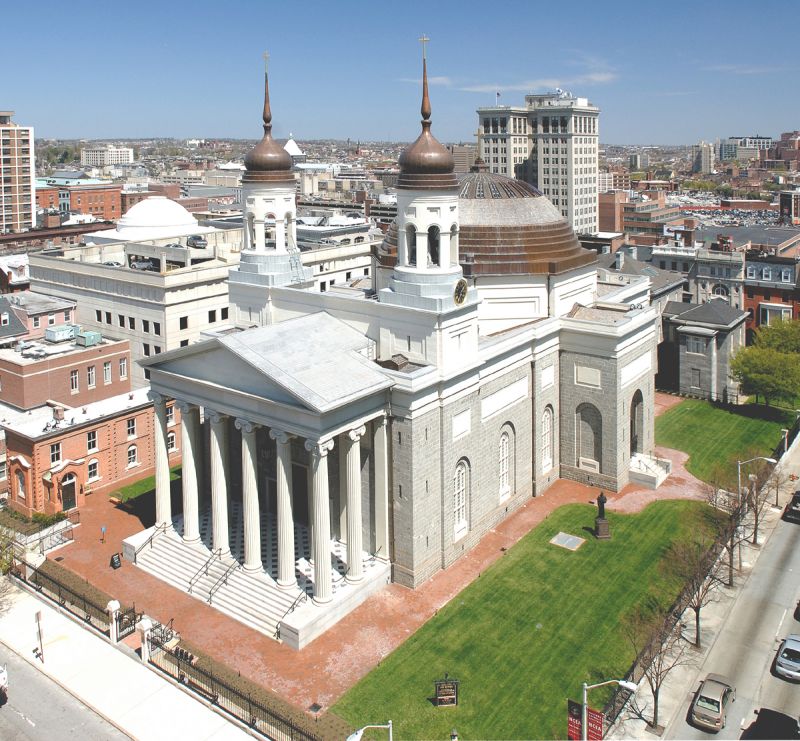 Talitha Kum members hold a sculpture of St. Josephine Bakhita in St. Peter’s Square on Feb. 6, 2022. / Credit: Vatican Media
Talitha Kum members hold a sculpture of St. Josephine Bakhita in St. Peter’s Square on Feb. 6, 2022. / Credit: Vatican Media
Rome Newsroom, Feb 8, 2024 / 12:15 pm (CNA).
On the 10th International Day of Prayer and Awareness against Human Trafficking, Pope Francis urged people to take concrete actions to “combat this global scourge.”
“Let us help one another to be more responsive, to open our lives and hearts to our sisters and brothers who even now are being bought and sold as slaves. It is never too late to take action,” Pope Francis said in a message published Feb. 8.
“Let us pray fervently and work proactively for this cause, the defense of human dignity, whether by prayer and action as individuals and families, or as parish and religious communities, as ecclesial associations and movements, and also in the various spheres of social and political life.”
The pope’s comments came as Catholics from more than 50 countries across the world rallied together virtually as part of an online prayer marathon for the International Day of Prayer and Awareness against Human Trafficking.
Human trafficking is estimated to be a $150 billion industry that profits off of an estimated 49.6 million victims worldwide, according to the International Labor Organization. The U.N. agency documented a 25% increase in the number of people experiencing modern slavery between 2016 and 2021.
Pope Francis established the International Day of Prayer and Awareness against Human Trafficking 10 years ago to coincide with the Feb. 8 feast of St. Josephine Bakhita, the patron saint of human trafficking victims.
“Together let us walk in the footsteps of St. Bakhita, the religious sister from Sudan who as a child was sold into slavery and was a victim of traffickers. Let us remember the wrong she endured, her suffering, but at the same time her strength and her journey of liberation and rebirth to a new life,” Pope Francis said.
“St. Bakhita encourages us to open our eyes and ears to see those who go unseen and to hear those who have no voice, to acknowledge the dignity of each person and to fight trafficking and all forms of exploitation.”
St. Josephine Bakhita was born in 1869 in Sudan. Around 1877, she was kidnapped and sold into slavery by Arab slave traders. During her time as a slave, she was beaten, tortured, and scarred.
Eventually, in 1883, she was sold to the Italian vice-consul Callisto Legani, who took her with him back to Italy. While in Italy, she was given to a family and became their nanny, and that family eventually left her with the Canossian Sisters in Venice when they traveled to Sudan for business.
Once with the sisters, she learned about Christianity and decided to become Catholic. She refused to go back to the family that enslaved her once they returned to Italy, and an Italian court ruled that since slavery had been outlawed in Sudan before her birth, she was not legally a slave. She was then freed from slavery.
With her newfound freedom, Bakhita remained with the Canossians. She took the names Josephine Margaret and Fortunata, the Latin translation of her Arabic name, Bakhita. Three years later, she became a novice with the Canossian Daughters of Charity and professed her final vows on Dec. 8, 1896.
She then lived out the remainder of her life in a convent in Schio, Vicenza, working as a cook and a doorkeeper. She died on Feb. 8, 1947, and was canonized on Oct. 1, 2000, by Pope John Paul II.
Pope Francis urged people to respond to his appeal to fight human trafficking in honor of St. Josephine Bakhita, who he said “stands for all those men and women who, despite their enslavement, can still attain freedom.”
“It is a call to take action, to mobilize all our resources in combatting trafficking and restoring full dignity to those who have been its victims.”
The online prayer marathon for the world day against human trafficking is being coordinated by Talitha Kum, a network of more than 2,000 Catholic religious sisters who serve on the front lines of the fight against sex trafficking, helping survivors find healing and true freedom.
Religious sisters affiliated with Talitha Kum are present in 77 countries. Members of the network have served 10,000 trafficking survivors by accompanying them to shelters and other residential communities, engaging in international collaboration, and helping them to return home.
“From my heart, I express my gratitude to everyone engaged in the celebration of this day, and I bless all those who are committed to combatting trafficking and all forms of exploitation in order to build a world of fraternity and peace,” Pope Francis said.
[…]










